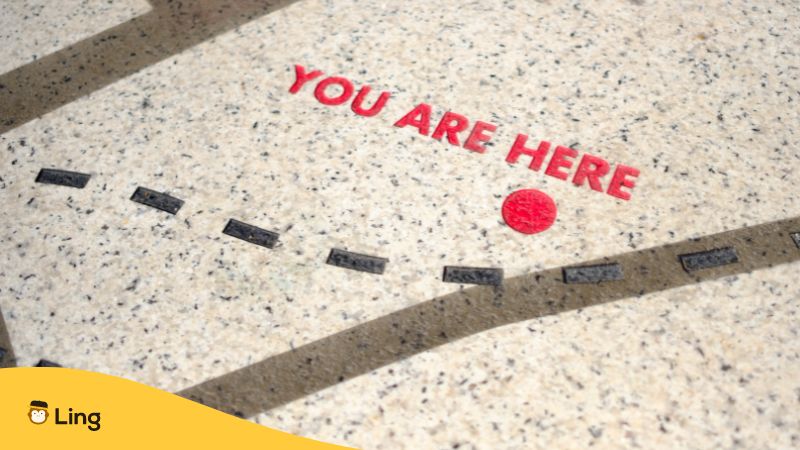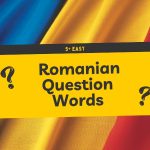Adverbs are the words and phrases in a language that give us clarity. They are very important in expressing aspects such as time, place, and manner. While wrapping your head around all the rules may seem intimidating at first, especially when mastering a new language, this blog will guide you through them in a fun and interesting way.
When forming a sentence, we rely on words such as nouns and verbs. But we might want some extra information! Enter adverbs and adjectives—the words that provide the extra details we crave. By understanding adverbs, we gain the ability to talk about things in more detail, as they tell us more about actions: how they happen, where, when, or how often. With this in mind, we’ll be exploring Slovenian adverbs in this lesson to help you better understand this European language.
Slovenian Adverbs
Adverbs, or prislovi, are used to modify a verb, adjective, or even an entire sentence, but not a noun. They provide additional details about actions or events, such as how and when they occur. Other adverbs tell us where something is happening. Once you understand adverbs in Slovenian, you’ll gain the ability to describe a situation more accurately. The great thing about them is that they remain unchanged, regardless of the context.
Now let’s learn some Slovenian!

What Types Of Adverbs Does The Slovenian Language Have?
1) Adverbs Of Time (Časovni Prislov)
Adverbs of time in Slovenian are like little helpers that let us understand when, how often, or for how long something happens. With adverbs of time, we get the answer to the question ‘when?’ (kdaj?). Here are some examples:
| English | Slovenian |
| today | danes |
| tomorrow | jutri |
| yesterday | včeraj |
| now | zdaj |
| later | kasneje |
| before | preden |
| then | potem |
| already | že |
| still | še |
| always | vedno |
| never | nikoli |
| often | pogosto |
| rarely | redko |
| usually | običajno |
| sometimes | včasih |
| soon | kmalu |
| late | pozno |
Sentence Examples
- Today is a nice day. – Danes je lep dan.
- Tomorrow we’re going on a trip. – Jutri gremo na izlet.
- I went to the cinema yesterday. – Včeraj sem šel v kino.
- We’re going out later. – Kasneje gremo ven.
- Before we go on vacation, we need to pack. – Preden gremo na počitnice, moramo spakirati.
- Then we can take a walk. – Potem lahko greva na sprehod.
- I’ve eaten already. – Sem že jedel.
- We’re not ready yet. – Nismo še pripravljeni.

2) Adverbs Of Place Or Space (Krajevni Prislov)
Adverbs of place in Slovenian tell us where actions happen or where someone is headed. They help answer questions like ‘where?’ (kje?), ‘where to?’ (kam?), and ‘from where?’ (od kod?). Using these adverbs right is very important for clear communication in Slovenian. Think of them next time you’re in Slovenia, asking for directions! Here are some examples:
| English | Slovenian |
| here | tukaj |
| there | tam |
| above | zgoraj |
| below | spodaj |
| inside | notri |
| outside | zunaj |
| forward | naprej |
| backward | nazaj |
| left | levo |
| right | desno |
| near | blizu |
| far | daleč |
| up | zgoraj |
| down | spodaj |
| beside | ob strani |
| opposite | nasproti |
| ahead | spredaj |
| behind | zadaj |
| upward | navzgor |
| downward | navzdol |
Sentence Examples
- My home is here. – Tukaj je moj dom.
- Children are playing outside. – Otroci se igrajo zunaj.
- Turn to the left. – Obrni se na levo.
- Go ahead on the road. – Pojdi naprej po cesti.
- Step back. – Stopi nazaj.
3) Adverbs Of Manner (Načinovni Prislov)
Adverbs of manner are also essential in the Slovenian language. They provide information about the way something happens. With adverbs of manner, we get an answer to the question ‘how?’ (kako?). Here are some of them:
| English | Slovenian |
| quickly | hitro |
| slowly | počasi |
| well | dobro |
| poorly | slabo |
| precisely | natančno |
| hastily | naglo |
| gently | nežno |
| hard | trdo |
| softly | mehko |
| quietly | tiho |
| loudly | glasno |
| nicely | lepo |
| clumsily | nespretno |
| successfully | uspešno |
| unsuccessfully | neuspešno |
Sentence Examples
- I can run quickly. – Hitro tečem.
- I walk slowly. – Počasi hodim.
- I cook well. – Dobro kuham.
- I work hard. – Trdo delam.
- I speak quietly. – Tiho govorim.
- I laugh loudly. – Glasno se smejem.

4) Adverbs Of Cause Or Reason (Vzročni Prislov)
Adverbs of cause tell us why something has happened. They answer the question ‘why?’ (zakaj?). Here are some examples of Slovenian adverbs of cause:
| English | Slovenian |
| therefore | zato |
| because of that | zaradi tega |
| thus | torej |
| consequently | posledično |
| because | ker |
| for a reason | z razlogom |
| so | tako |
| due to | zaradi |
Sentence Examples
- Consequently, the road is closed. – Posledično je cesta zaprta.
- Since it was cold, I put on a sweater. – Ker je bilo mrzlo, sem si oblekel pulover.
- He was angry for a reason. – Z razlogom je bil jezen.
- Due to the injury, I had to cancel the match. – Zaradi poškodbe sem moral odpovedati tekmo.
Make Sure You Don’t Confuse Adverbs And Adjectives!
Take a look at these two sentences:
- Ana je narisala lepo sliko. (Ana drew a nice picture.)
- Ana lepo riše. (Ana draws nicely.)
They both use the same word (lepo), but in the first sentence, it’s an adjective, while in the second, it’s an adverb. How do we know how to tell them apart? Simple! Ask yourself the following questions:
- Kakšno sliko je narisala? (What kind of picture did she draw?) – Lepo (A nice one). This is an adjective!
- Kako riše? (How does she draw?) – Lepo (Nicely). This is an adverb!
Learn Slovenian With Ling
Isn’t the Slovenian language fascinating? So many linguistic intricacies in such a tiny country! But they don’t need to be hard or complicated for new learners, we’ve got you covered with that!
With the Ling app, you can learn Slovenian and speak like a local in no time. And if you want to take things even further, Ling is the best app for lesser-known Asian and Eastern European languages as well! It not only makes hard languages easy, but also helps you understand the cultures behind them.
So what are you waiting for? Download it from the App Store or Google Play Store today!



































































